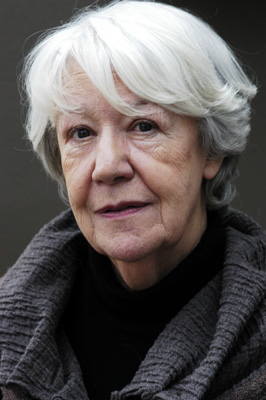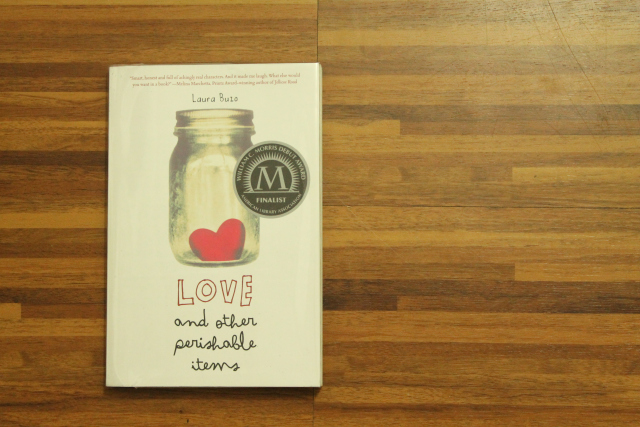Take a look through the historical fiction section of any decent bookshop, and you’ll likely find a mass of novels set in one of the cataclysmic world wars which characterised the early twentieth century as one of the bloodiest periods in the history of humankind. Though the conflicts have inspired a huge range of work, it is perhaps less common, in adult fiction at least, to come across one which looks at the period from the perspective of an infant. Adriana Hunter’s translation of French novelist Marie Sizun’s Le père de la petite, published in the UK as Her Father’s Daughter, is a taut and subtle examination of the frail ties that bind families together. Although it is set in Paris during the final throes of the Second World War, it would be a disservice to describe this merely as another novel about wartime. With varying success, Sizun’s themes ambitiously range from love, betrayal, deception and fatherhood to memory in a work which poses more questions than it answers.
 Cover image courtesy of the publisher.
Cover image courtesy of the publisher.
In a suburb of Paris lives France, the third-person narrator, a spoilt young girl with a doting mother and a father she has never met due to his incarceration in a German POW camp. As the end of the war approaches, her father returns to an initially joyous household, and France must learn to share her mother’s attentions and win around a man who is dismayed by her over-indulged upbringing. As cracks appear in her parents’ relationship, France is faced with a dilemma regarding a secret kept between her mother and grandmother, the implications of which she does not comprehend. In a sequence reminiscent of Ian McEwan’s Atonement, the child makes a fateful decision based on her interpretation of events, and it changes her family forever. With impressive nuance, Sizun is able to convey the shifting emotions of the adult characters in the narrative solely through France’s view of their interactions. Though the child remains largely ignorant of the meaning of her decision until her later life, it quickly becomes heart-breakingly clear to the reader.
Her Father’s Daughter is part of the ‘Fairy Tale’ series which has emerged from Peirene Press in 2016. Last year I covered another title in the series for The Oxford Culture Review, The Man I Became by Peter Verhelst. Both of these works push the boundaries of what might be considered a fairy tale, though they differ wildly in terms of subject. While Verhelst’s novel is an unsettling imagining of a gorilla being transformed into a human, set in a dystopian future New York, Sizun’s work is a less adventurous, but no less thought-provoking, evocation of 1940s French society. Two related common themes are apparent however: the novels’ potential for allegory, and their focus on the journey from innocence to experience characteristic of the Brothers Grimm or Hans Christian Andersen. In both novels the authors seek to diminish the individuality of their protagonists in order to give a nod to their broader allegorical message. Sizun’s approach is particularly effective as she takes her lead from the non-specific title and refers to the characters predominantly by their family roles. Thus for a large part of the narrative the protagonist is identified simply as “the child” or “she”, with her name only coming into use as the impact of her decision becomes clear. In a sense France only begins to know herself as she comes to understand her part in the trauma that she has in some way caused. The allegory is furthered by the decision to name the child France, which draws the reader to seek a more universal meaning behind the plot and perhaps leads us to consider the complicity of the Nazi-sympathizing Vichy France government in the trauma of the Second World War. The post-lapsarian tinge to this allegory is consistent with Verhelst’s figuring of his gorilla protagonist, whose self-consciousness develops out of trauma, though in the case of The Man I Became that trauma concerns the loss of his freedom and homeland.
 Portrait of the author, courtesy of the publisher.
Portrait of the author, courtesy of the publisher.
The particular strength of The Man I Became was Verhelst’s daring re-imagining of the human condition, and the displacement of that theme into an exotic, futuristic setting. This daring was all the more impressive given the shortness of the book – Peirene Press pride themselves on delivering books that can be enjoyed in a two-hour sitting. At 150 pages Sizun’s work is similarly concise. While itis suffused with subtle hints of larger ideas, the narrative lacked the punch and impact that you might expect from a book so short. Although France’s story provoked genuine moments of sadness, particularly as she becomes more aware of the implications of her decision, the failure to develop these moments mean that the reader is left with an unsettling lack of certainty.
Perhaps this uncertainty is symptomatic of the fairy-tale style evoked in Sizun’s narrative. Despite the sombre realism of the wartime Parisian setting, with its rationing and air raid warnings, the author’s focus on seeing events through the eyes of the infant France allows an ethereal, almost fantastical, layering of many possible interpretations which makes the reader question if any of what they are being shown is fact. Just because France sees her mother cry, or her father curse, are we really able to trust that she knows the true cause? Although in some places one might wish for more answers, Sizun’s overriding message is that often there isn’t an easy explanation, in life or fiction, and the sooner we come to terms with this, the better. In a world where popular culture seems bent on reducing every utterance to its simplest and most commercially viable form, Her Father’s Daughter is a satisfyingly elusive and cagey work which offers no quick fix to the dilemmas faced by its characters.
Ben Horton
‘Her Father’s Daughter’ is published by Peirene Press, RRP £12.
We are on Twitter @Oxford_Culture, Facebook, and Instagram
Advertisements Share this:




